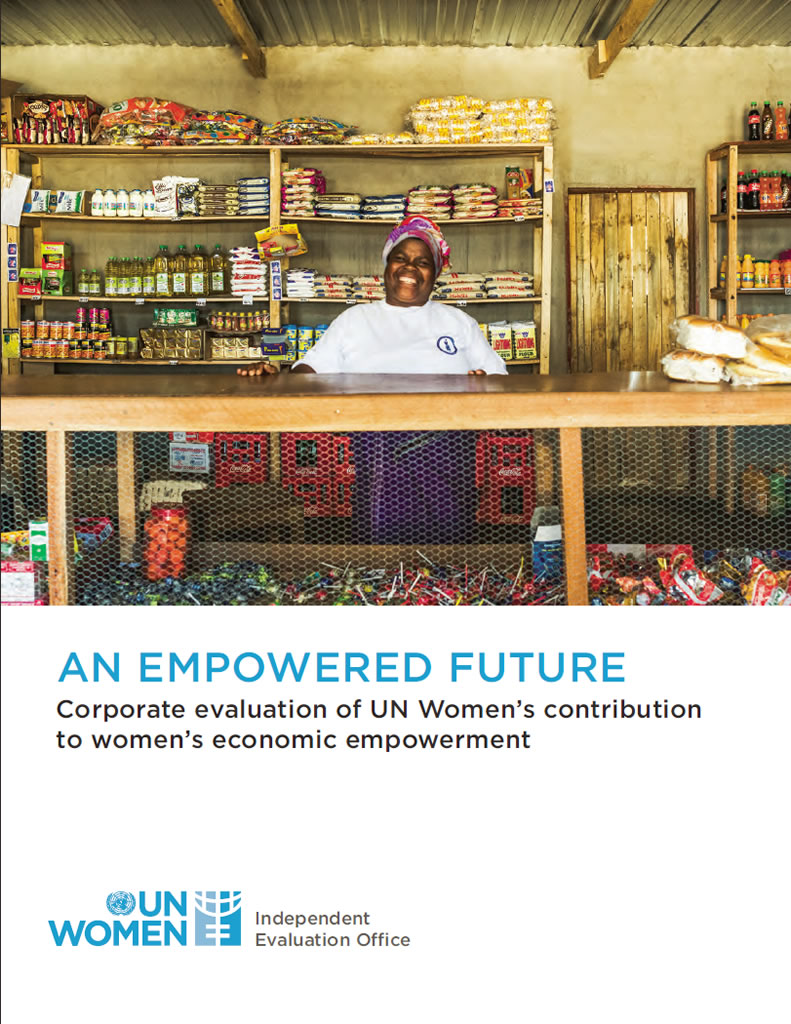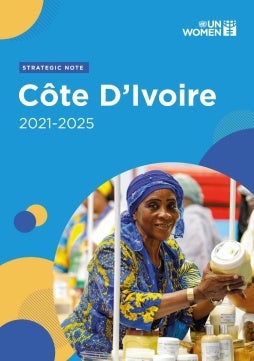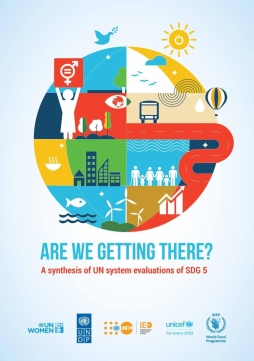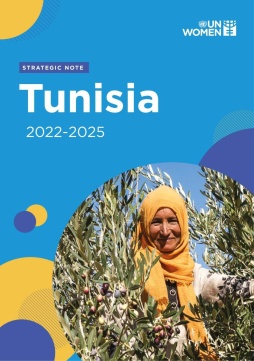An empowered future: Corporate evaluation of UN Women’s contribution to women’s economic empowerment
The international community has identified women’s economic empowerment as an objective that is critical not only for achieving gender equality but also for overall development and poverty reduction. Improving the economic status of women can lead to better outcomes at the individual, family and community level, and has ripple effects across society. Research shows that women’s economic empowerment affects not only the economic health of countries through increased productivity, but also overall health and well-being outcomes for the next generation. UN Women has thus prioritized women’s economic empowerment as an objective to achieving gender equality and women’s empowerment.
UN Women’s Independent Evaluation Office undertook this corporate evaluation to learn from the progress made so far towards achieving results, with the aim of informing future work. The evaluation covered all dimensions of women’s economic empowerment work in UN Women. It identified strengths and weaknesses and developed five recommendations intended to enhance UN Women work in women’s economic empowerment at both the national and global levels.
To what extent are UN Women interventions to support women’s economic empowerment relevant, strategic and effective to move forward the women’s rights agenda? How can the UN Women approach to women’s economic empowerment be strengthened to better contribute to current development priorities such as poverty reduction, the post-2015 development framework and Beijing +20? How effective is UN Women engagement with key partners in this area? These are some of the questions that the evaluation addresses by analysing evidence covering all dimensions of women’s economic empowerment work in UN Women—namely its mandates to support normative, operational and coordination work at the global, regional and country levels.
The evaluation is a resource for policymakers, governments, civil society and evaluators that wish to learn from the experience of UN Women in its contribution to women’s economic empowerment.









